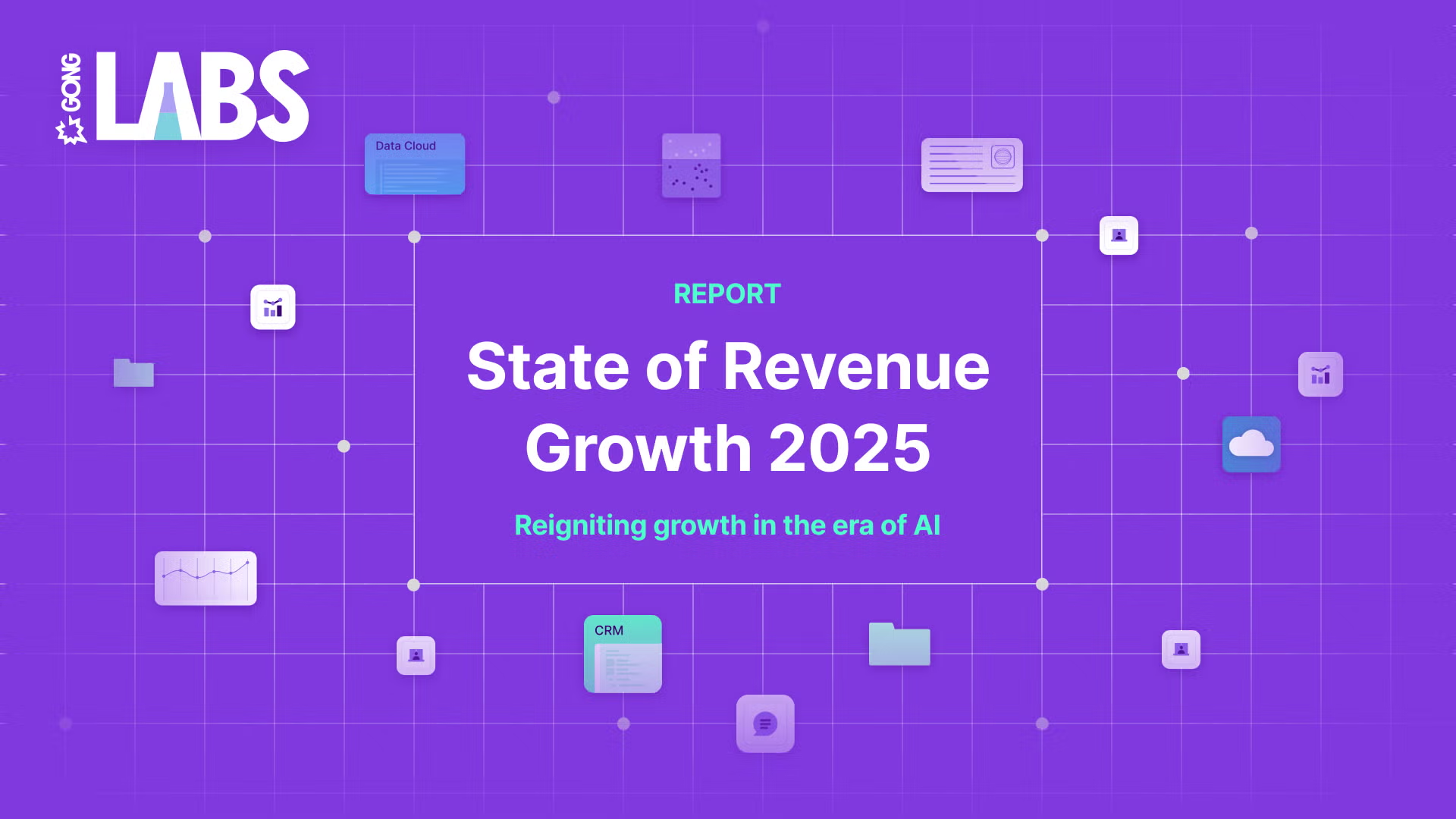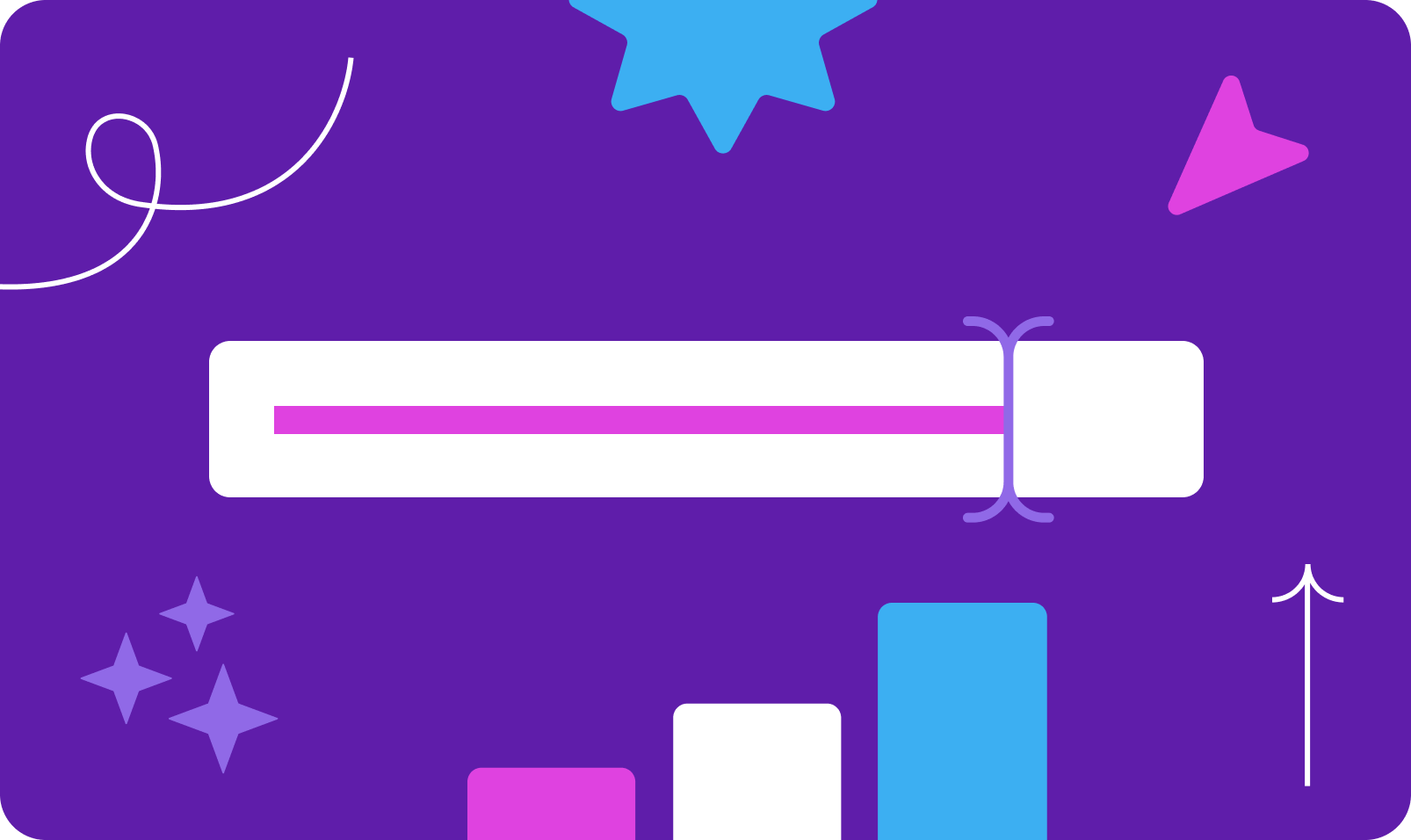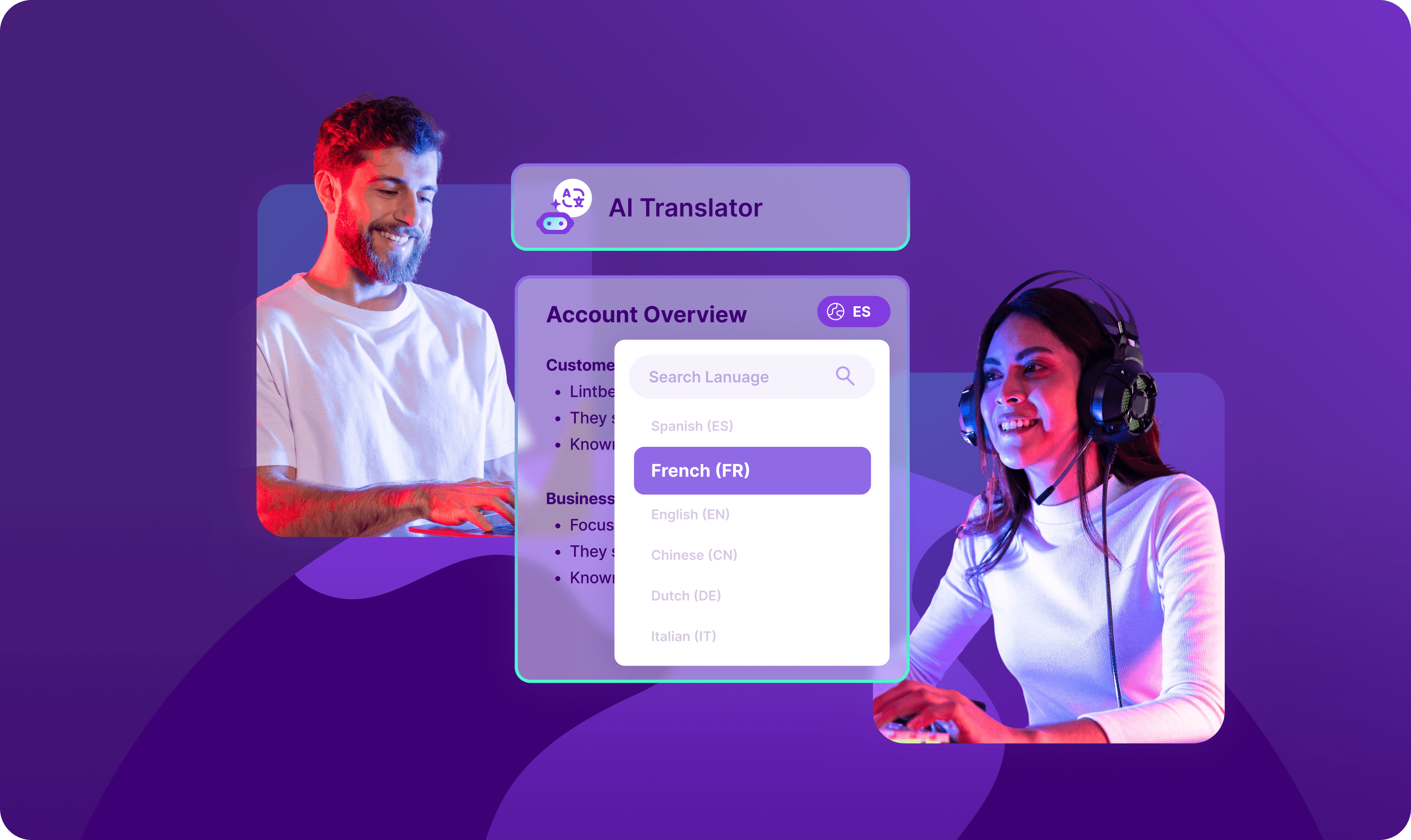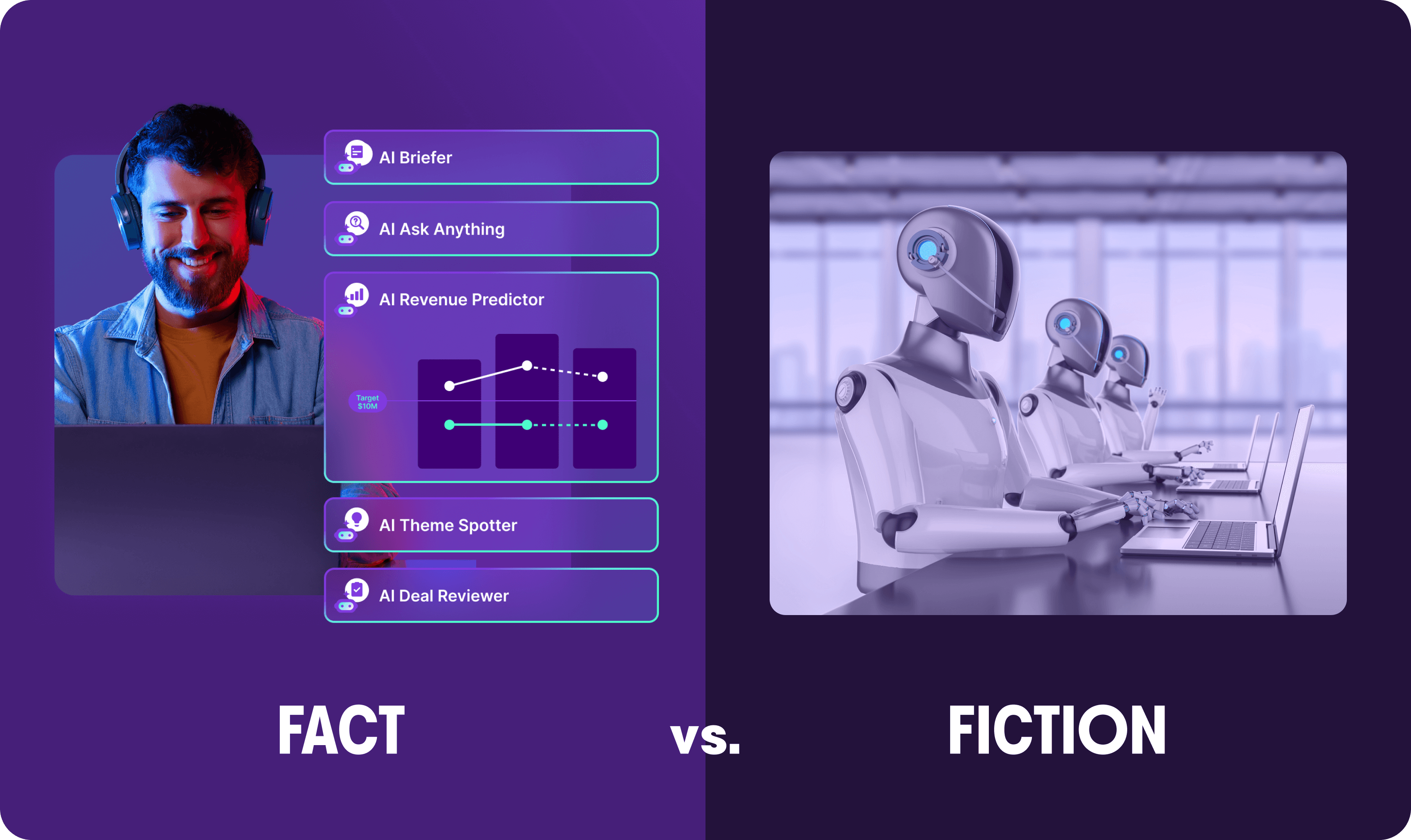Sales strategies
A Guide to Sales Intelligence Tools: Important Features, Common Challenges, and Selection Criteria

Dan Morgese
Director, Content Strategy and Research at Gong
Published on: July 24, 2024
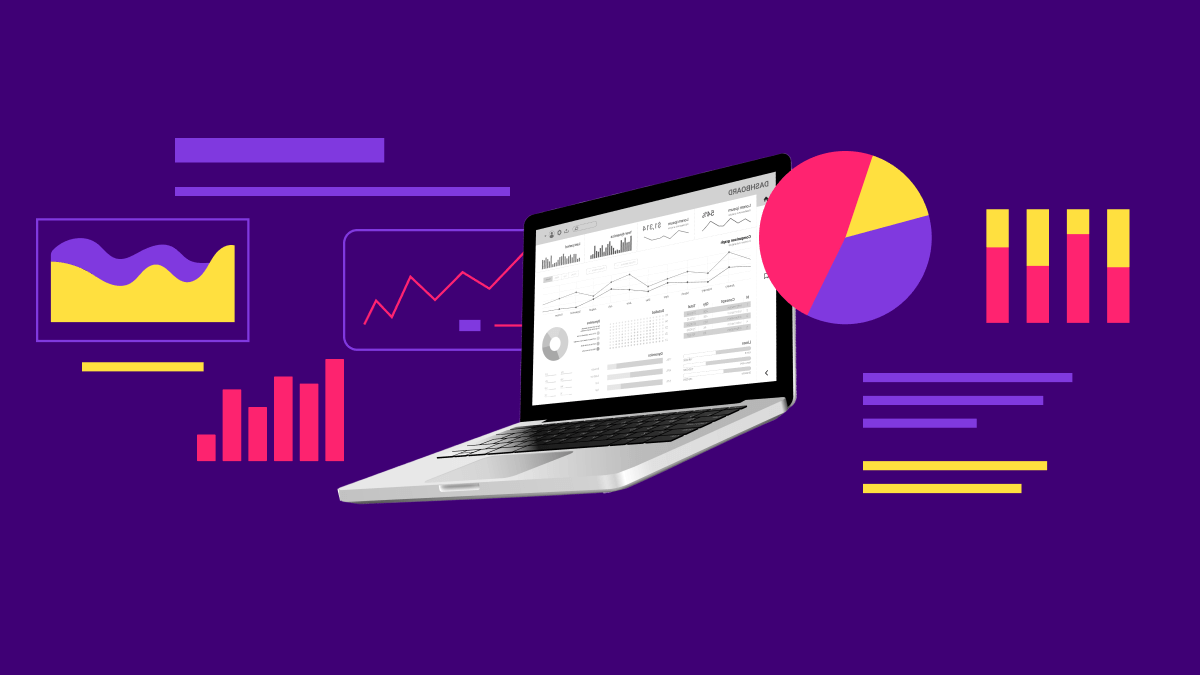
Sales intelligence tools are revolutionizing how businesses approach customer interactions. But with hundreds of sales intelligence platforms claiming to be the “best,” how do you identify the right one for your team? You need to know what makes a sales intelligence tool a perfect companion for driving revenue growth.
This guide will highlight the common features, integrations, and strategies you need to leverage AI tools to boost your sales.
What are the different types of sales intelligence tools?
These days, new sales intelligence tools come onto the market fairly regularly, and most of them address the pain points in one or several categories below. It’s important that you understand what’s on offer in each category so you can choose a tool that solves your most pressing challenges.
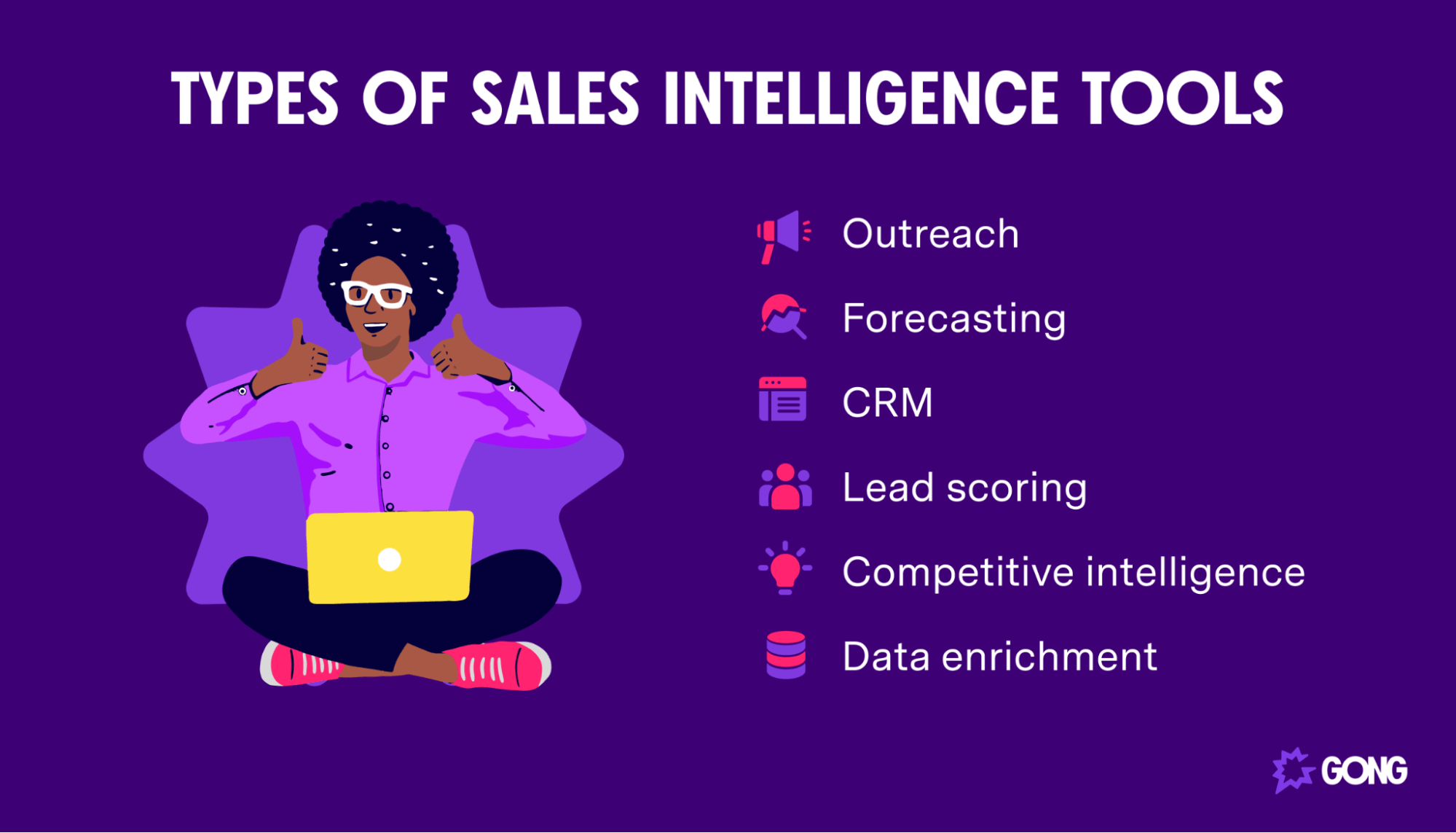
Here are the most common categories addressed by sales intelligence tools today:
1. Outreach
This type of sales intelligence tool offers insights into a customer’s needs, pain points, and interaction history, which your marketing and sales teams can use to tailor their outreach efforts.
Personalized messaging engages prospects more successfully, getting them interested in your product, and nudging them to initiate contact as a high-quality inbound lead. Your team can then nurture them further and improve conversion rates with targeted communication.
2. Forecasting
Sales forecasting tools estimate your team’s future revenue based on their current pipeline. Some also predict industry trends to facilitate informed decision-making around growth and stability.
This type of sales intelligence tool offers insights into your potential sales volume so you can allocate resources accordingly. Sales forecasting enables better budget planning, realistic goal setting, inventory management, and risk management.
3. CRM
A CRM (customer relationship management) is a sales intelligence tool that stores, organizes, and analyzes all your company’s relationships and interactions with existing and potential customers.
CRM software offers contact management, automates repetitive manual tasks, and streamlines sales processes. CRMs also generate detailed customer profiles and enable better service personalization, thereby improving customer satisfaction and loyalty.
4. Lead scoring
Too many sales organizations spend time chasing the wrong leads. Sales intelligence software with lead scoring lets you rank prospects based on their conversion likelihood.
A scoring framework quantifies the prospect’s interest in your product and filters out low-quality opportunities. It helps your sales reps clarify which prospects are worth pursuing so they can focus on high-quality leads. This should improve their productivity and conversion rates.
5. Competitive intelligence
Competitive intelligence analyzes the voice of your customer so you can glean actionable insights into your position in the industry. It’s a great way to stay ahead of the curve.
It pinpoints where your competitors are doing well or falling short so you can learn from their successes and mistakes, identify gaps in their services, and gain a competitive edge. Competitor insights also help you identify market trends and risks in time to mitigate them.
6. Data enrichment
This type of sales intelligence tool enhances existing datasets with additional information. It detects the slightest changes in customer and prospect behaviors and lets you update your ideal customer profile and segments accordingly.
What should you look for in sales intelligence tools?
Key features
Data management
Manual data entry is inefficient and takes time, and reps often miss critical data points and valuable insights. Plus, sales leaders struggle to manage data on multiple platforms, with 87% of them considering “unstructured” data management their top priority.
That’s why unified data management is a key feature you should look for in a sales intelligence tool. Automated data entry and a centralized data repository are critical, and allow sales teams to access customer insights more easily.
For example, Gong’s Revenue Intelligence platform captures every customer interaction from sales calls, emails, web, and more, and analyzes them in a centralized platform where sales team can access insights and information. This saves time and improves their productivity.
Lead scoring and prioritization
Your sales intelligence tool must have a lead scoring and prioritization capability so your sales reps can make the most of their time.
Your chosen tool should be able to factor in the ideal buyer persona and other predefined criteria and analyze how leads interact with your business and industry.
Based on the insights it gleans, it should group your leads into interest score categories that your sales reps can use to prioritize their efforts. This will streamline the sales process and focus your resources in the right areas.
In short, a sales intelligence platform with a lead-scoring feature can:
- Pinpoint the most promising prospects
- Identify potential leads that need more nurturing
- Eliminate leads that are unlikely to convert
With Gong, you get AI-powered analytics that score your leads in real time. The result is efficient resource allocation, a highly productive sales team, and better conversion rates.
Predictive analytics and forecasting
In competitive industries, the stakes are high and there’s no room for guesswork when it comes to your revenue. That’s why predictive analytics and sales forecasting should be key features in your sales intelligence tool. Combining historical data with current and emerging patterns allows your team to forecast sales and track customer behaviors so they can respond in real time.
The tool should include:
- Sales and revenue forecasting
- Market analytics
- Risk analytics
A sales tool with these types of analytics helps you accurately predict your sales performance and set realistic sales goals. It empowers you and your team to stay on track and handle even the most tumultuous market trends.
Want your business to be battle-ready?
Eliminate the guesswork from your sales efforts with Gong. Its advanced analytics give you predictive insights into your team’s sales performance and customer engagement and detect risks to your sales pipeline.
Real-time alerts
Your team doesn’t have time to check your sales intelligence platform for hourly changes. That’s why you need a sales tool that provides real-time updates. These will keep everyone responsive to opportunities or risks as they arise.
Give your sales professionals instant notifications when a prospect takes a specific action, or a significant event occurs in the customer journey. You should be able to set up alerts for competitor insights and changes in market trends too.
Gong offers real-time monitoring capabilities, action-based triggers, and intent signals that will always keep your sales team informed of critical developments. You can set up targeted actions, and the system will send instant alerts, letting you capitalize on opportunities, address challenges, and stay ahead of the competition.
Sales performance tracking
Effective sales strategies are built on understanding your pipeline’s overall health, your team’s strengths and weaknesses, and how the market’s responding to your messaging. Being aware of each rep’s potential areas for improvement is critical to eliminating roadblocks to your sales goals.
Use a sales intelligence tool to monitor and assess individual and team performance against set goals and benchmarks and ensure individual accountability.
The tool should let you customize and measure metrics unique to your company so everyone is aligned around the same goals. Regular sales performance tracking also identifies areas where the process may be a challenge, thereby enabling optimization of the sales process.
With Gong, you get comprehensive tracking features to monitor your sales performance.
Integrations
Going back and forth between multiple tools wastes time, hampers sellers’ workflows, and reduces productivity. That’s why your sales intelligence tool should integrate with your existing tech stack.
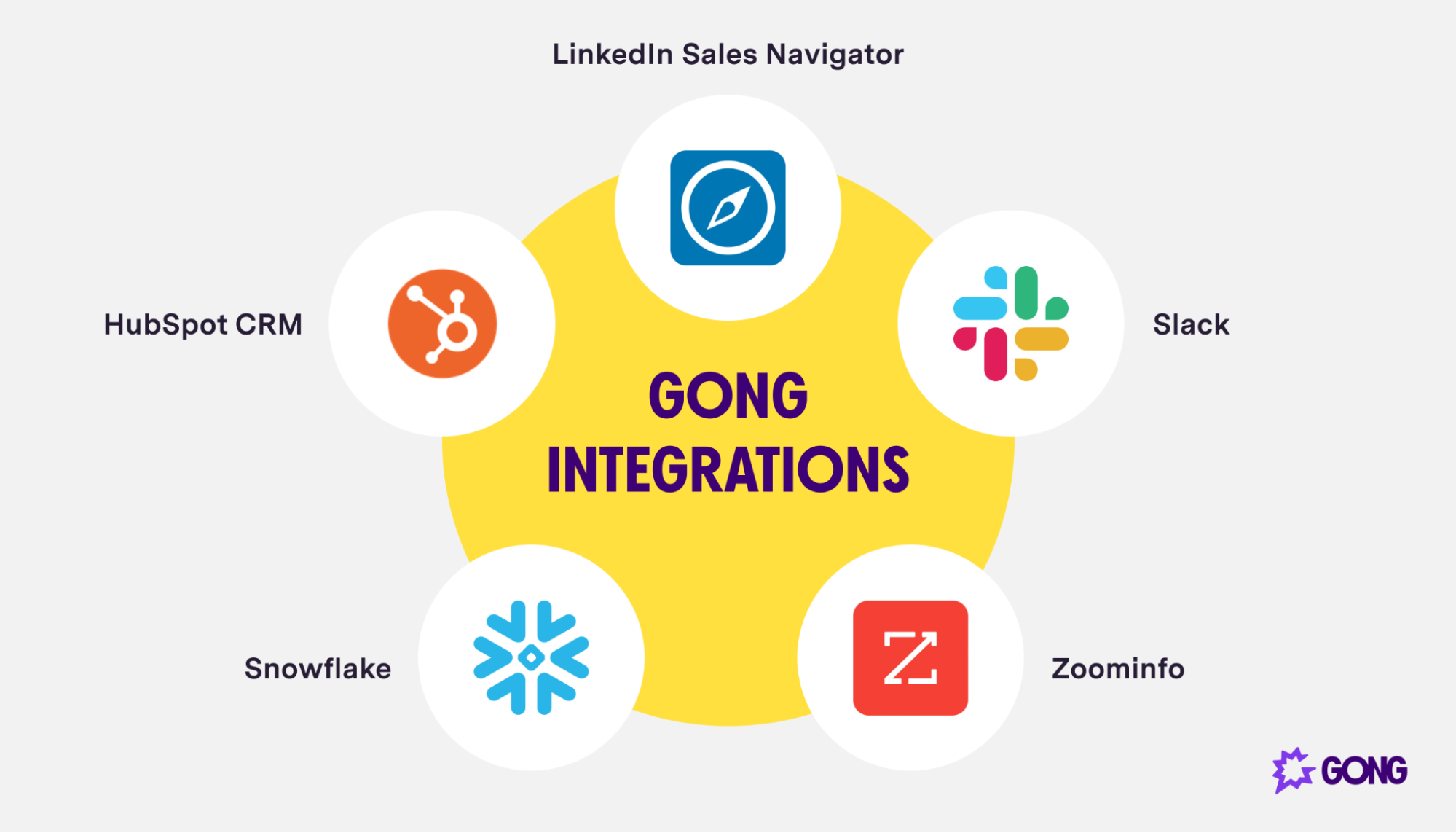
Here are some integrations you need to confirm before selecting a sales intelligence tool:
CRM integrations
Your sales intelligence toolmustintegrate with your CRM to synchronize data and offer an unparalleled view into your sales funnel.
Having a CRM integration means your sales intelligence tool can collect all the information from your customer interactions, including contact details and email addresses, and centralize them in one platform. If your sales intelligence tool offers automation, this can reduce the need for manual data entry, cut the risk of errors, and ensure the consistency and accuracy of the information used across your team.
A tool that integrates with CRM can enable more personalized outreach campaigns, maximizing impact. Your sales reps can also access relevant details about their leads, refer to previous sales conversations, and nurture prospects accordingly. A well-informed team can offer more substantial and faster solutions to queries and requests, thereby improving customer experiences, satisfaction, and loyalty.
Gong integrates with popular CRM solutions, including HubSpot , Salesforce , and Microsoft Dynamics 365 .
Email platforms
Investing in sales intelligence tools that sync with your email marketing tools lets you track and collect valuable insights from communications with prospects. You can measure email metrics like open rate, click-through rate, unsubscription rate, etc., to see where you can perform better. Email integration lets you identify the communication strategies that drive the best results, so you can apply them across your team.
Gong integrates with email marketing solutions like Lavender , Google Workspace , and Microsoft Office 365 .
Marketing automation tools
Automate your marketing efforts to better target your audience. A great tool ensures that the right content reaches the right crowd at the right time, maximizing impact.
You’ll get the best results when your sales and marketing initiatives are aligned, which isn’t always an easy task.
The solution? Enable seamless integration between your sales and marketing teams. Having a holistic view of your sellers’ customer interactions can empower marketing professionals to craft campaigns around what prospects want, need, and expect. The sales team can also keep its promises aligned with what is advertised in marketing campaigns.
Looking for a sales intelligence tool that integrates with — and streamlines — your marketing?
Look no further than Gong . Here, you get an in-built marketing solution that offers full visibility into customer and prospect interactions. Your marketing team can collaborate to craft hyper-relevant messaging and drive more leads into the pipeline.
Social media platforms
Today, having a thriving LinkedIn profile is non-negotiable for any company. Make sure your sales intelligence tool offers these social listening features on LinkedIn:
- Monitor customer interactions and sentiments
- Identify social media profiles of potential customers and relevant conversations
- Engage with prospects and customers in real time
Gong’s extensive integrations include LinkedIn Sales Navigator so sales professionals can build and maintain close relationships with buyers at scale and sell virtually.
Business intelligence tools
When you use multiple data sets to craft your insights, they’re more accurate, which enables better decision making. Look for a sales intelligence tool that syncs with multiple business intelligence platforms.
Such integrations will combine your sales data with other organizational data sources and uncover actionable insights and opportunities. This helps solidify your outreach and sales strategies, and ensures the best possible results from every deal.
Gong makes this simple by integrating with tools like Zoho and Zapier , and syncing your customer interaction data in one unified platform.
Other criteria
Scalability
As your business scales, so will your need for data-driven insights. Choose a scalable tool that allows seamless expansion without compromising performance or functionality. Before investing, opt for a free version or a trial period to examine the tool’s agility.
Ease of use
Ensuring quick adoption is essential to maintaining productivity. That’s why you need a solution that offers a user-friendly interface and intuitive workflows. An easily navigable sales intelligence tool also minimizes training requirements and maximizes user engagement for successful implementation.
Customization
Sales benchmarks, prices, and target demographics vary depending on your niche. With rigid sales intelligence software, it’s difficult or impossible to set up the customized metrics you need to navigate your industry.
Thoroughly check how extensive the customization options are before investing in a sales intelligence tool. In particular, assess whether its reporting and email templates are customizable.
Security
Since sales intelligence tools deal with extensive amounts of sensitive customer information, their data security measures should be top-notch. Any breach could compromise your image or land you in legal trouble for non-compliance.
Before you sign up for a sales intelligence tool, check the terms and conditions thoroughly.
Customer support
Integrating new technology comes with challenges, and a sales intelligence tool is no exception. Your team may also need guidance to make the most of the tool’s features.
Make proactive customer support a top priority when you look for a sales intelligence tool. Be sure you clearly understand the vendor’s customer support framework — 24×7 customer assistance channels are a great indicator that they’ve got your back whenever you need them. It’s helpful to monitor G2, Capterra , or other review sites for reviews from current or former customers.
How can sales intelligence tools boost your revenue?
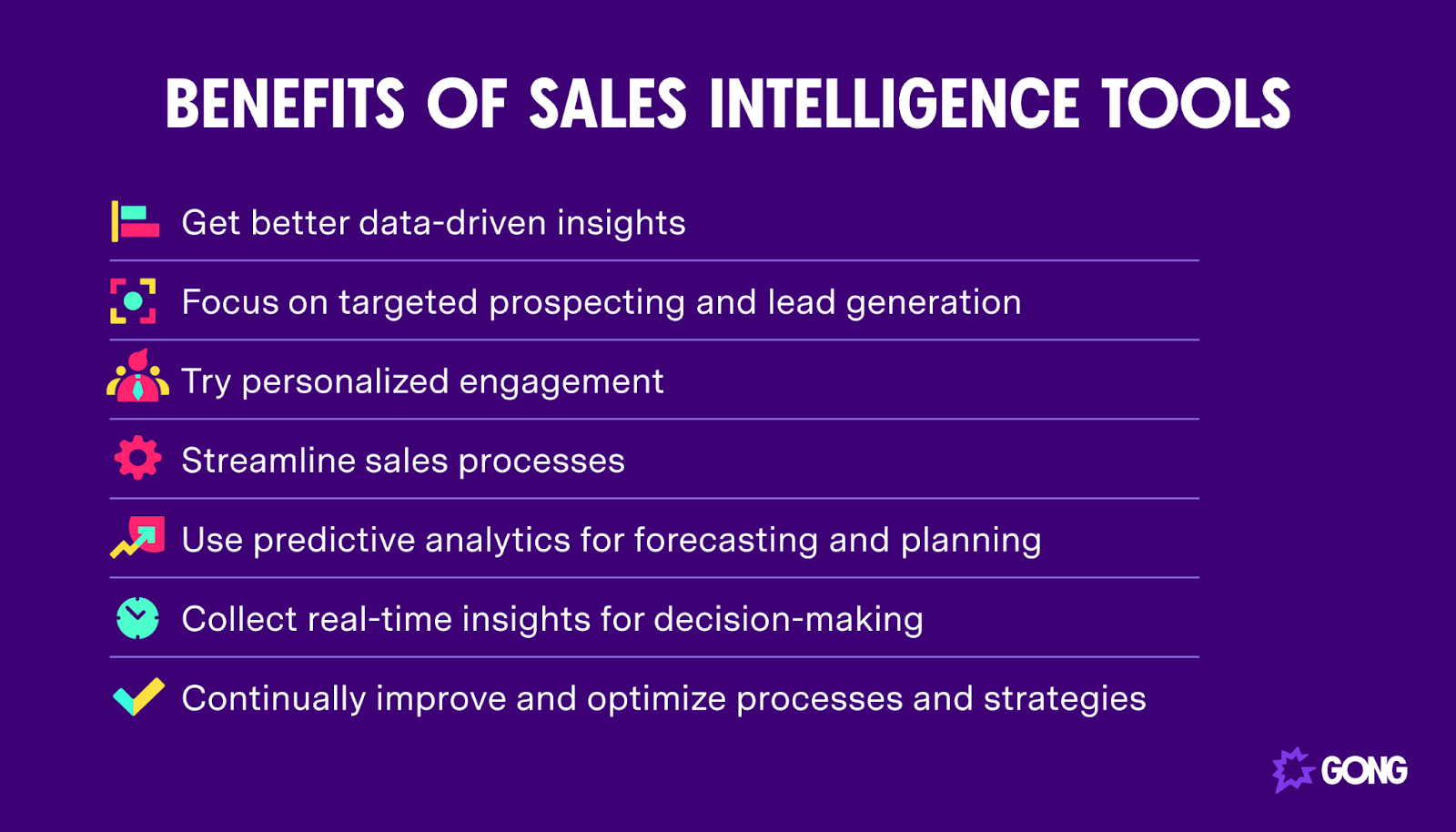
1. Get better data-driven insights
While business intuition is a component of any company’s success, you can’t rely on it to create an effective sales strategy. Data is your biggest asset. Sales intelligence tools let you turn your data into valuable insights and make informed decisions that boost revenue.
You can, for example, collect a target company’s details, analyze their behavior across each sales funnel stage, and stay updated on their changing preferences. Gong offers a LinkedIn Sales Navigator integration that identifies potential clients and collects data on the company’s size, its decision makers, and their job titles. The tool also crawls the client company’s website to strengthen its insights.
After pinpointing what the customer wants, a comprehensive sales intelligence can create a report that helps you:
- Update marketing strategies
- Revamp market positioning
- Minimize customer churn
- Maximize customer acquisitions
2. Focus on targeted prospecting and lead generation
Sales intelligence tools prioritize winnable deals through lead-scoring algorithms. You can refine your prospecting list using this tangible data and direct your efforts toward quality leads.
You can also customize your sales messaging for high-value leads, nudging them to conversion. Targeted and highly personalized outreach satisfies customers by providing them with the answers they need to their most pressing questions. This generates heightened interest and opens the door to further conversations.
3. Draft personalized engagement
Sales intelligence tools let you keep a finger on the real-time pulse of your market. They uncover data about current pain points, desires, and preferences, which your team can use to tailor their pitch, personalize outreach, drive more engagement, and build stronger relationships.
Your sales reps can refer to these customer insights while cold calling to highlight how your offering solves their challenges. You can also use sales intelligence tool data to customize your email outreach for different segments. For example, you can send exclusive offers based on individual prospects’ preferences and encourage CTA clicks. You can also nurture leads with regular, personalized email and social media content to maximize engagement and encourage recipients to explore your offerings.
4. Streamline sales processes
Sales involves time-consuming work, including manual data entry, lead research, and scoring — and manual processing is notoriously error-prone.
Sales intelligence tools automate these repetitive tasks, streamlining the entire sales process. When a lead enters the pipeline, the tool collects relevant data, and analyzes the prospect’s behavioral patterns..
This improves data accuracy, lets the teams focus on winning leads and strategies, improves productivity with optimized workflows, and generates more sales opportunities and a shorter sales cycle.
5. Use predictive analytics for forecasting and planning
AI-powered sales intelligence tools offer predictive analytics that track emerging market trends and demand patterns. Use these insights to project future sales and growth. It also spots market opportunities so you can capitalize on them before your competitors. Sales forecasting also enables better inventory and resource planning.
Unforeseen risks can shrink your revenue potential and hamper your business growth. Predictive analytics lets you avoid surprises by notifying you of possible threats to your pipeline and market risks. You can take preventive measures early on and protect your pipeline from any shake ups in the industry.
6. Collect real-time insights for decision making
Unexpected circumstances are inevitable in business, no matter how well you plan. When these situations arise, you may need to make decisions quickly, and sales intelligence insights can help. These tools constantly monitor key metrics and performance indicators and can notify you about significant changes in real time.
Instant alerts mean you can respond promptly to changing market conditions and customer needs. Real-time sales intelligence reporting makes your team more resilient in difficult times, enables fast and informed decisions, and protects your revenue.
7. Improve and optimize processes and strategies
Sales intelligence reporting can highlight bumps in your sales process and customer journey, and can help you drive continuous improvements. Track your team’s sales performance and identify what’s blocking reps. Then, finetune those areas and hone your strengths.
Common challenges in implementing sales intelligence tools
Training and adoption time
If your team uses manual sales processes, the newly implemented sales intelligence tool will take some time to adopt. To simplify the journey, ensure your team has sufficient training resources to refer to while using the platform.
Sales leaders should become familiar with the tool first. Then, run comprehensive training programs for sales managers and sales representatives to ensure their effective use of the tool. Create a dedicated manual of best practices and provide ongoing support and resources to encourage user adoption and proficiency.
Choosing the right tool
The wrong tool will fail to drive substantial revenue growth, and you’ll watch your investment go down the drain. Instead, make sure you take steps to select the right tool in the first place:
- Conduct thorough research across an array of tools and their features.
- Evaluate customizations to ensure they align with your long-term business objectives.
- Review the tool’s scalability, user interface (UI) for ease-of-use, and customer support.
Integration
You don’t want to get stuck with a tool that doesn’t fit your existing workflow seamlessly. Before selecting a tool, check out its integrations and ensure they are compatible with your existing tech stack.
You may face some issues while integrating the sales platform at first. Seek assistance from the vendor to simplify the integration process and minimize disruptions.
Cost considerations
Some tools may look affordable initially, but their costs may quickly add up because of hidden charges and add-ons. Choose flexible pricing plans so you can scale up your subscription as required.
How might sales intelligence tools change down the line?
1. Breakthroughs in AI technology
Reports show that 66% of B2B companies have opted for AI-powered sales automation tools. In the future, these tools will process even larger volumes of data with greater speed and accuracy. In time, they will likely be able to make real-time recommendations about potential sales process improvements.
Machine learning will eventually make forecasting even more accurate, enabling it to gauge more precise trends and risks.
2. Widespread adoption across industries
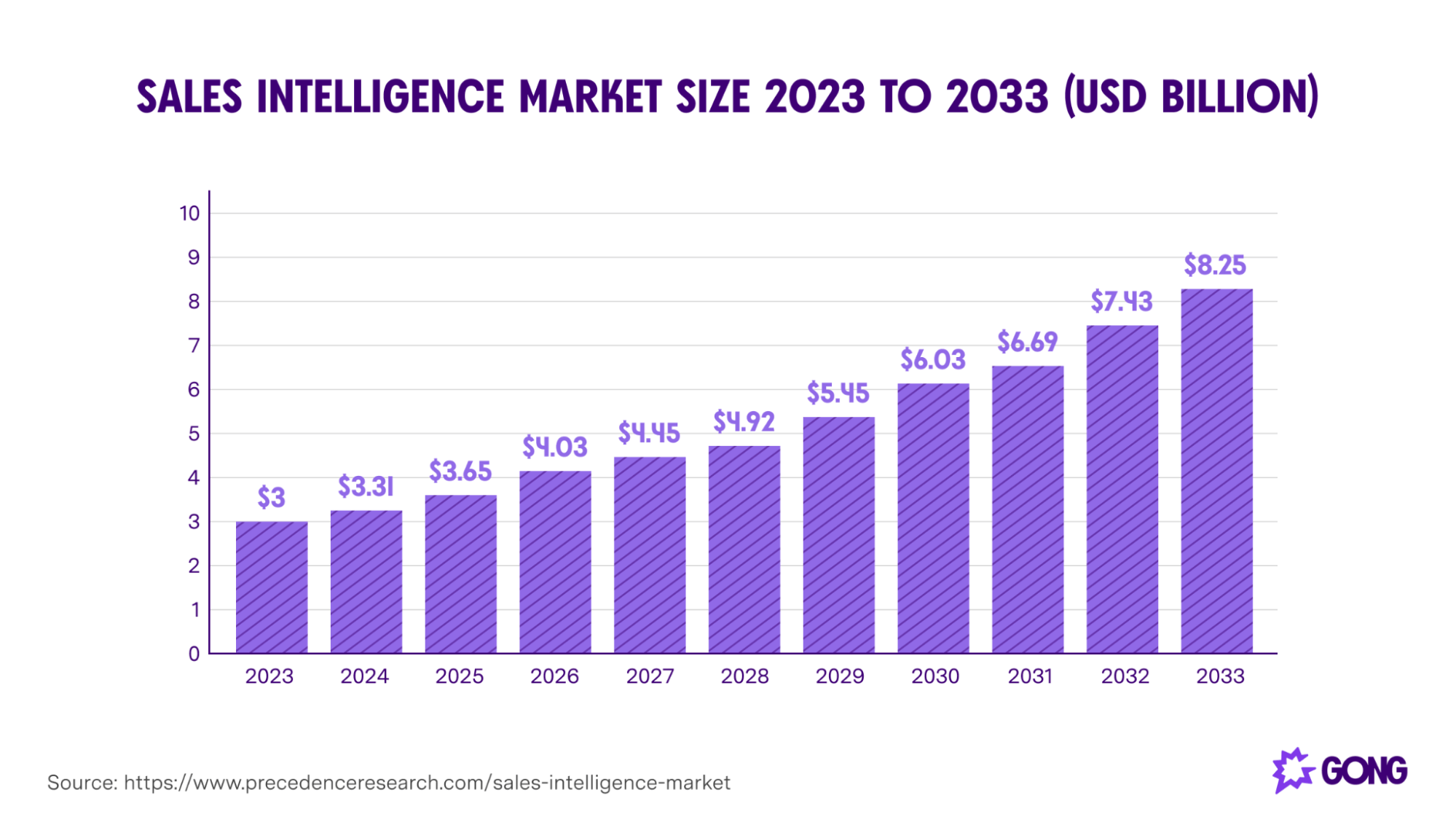
Reports estimated the global sales intelligence market size to be at $3 billion in 2023, and predict that it will reach $8.25 billion by 2033. These numbers indicate that a wide range of companies are investing in sales intelligence, and that this trend will only increase. It’s not a surprising trend given all that sales intelligence tools can do today and the capabilities we expect to see in the not-so-distant future.
3. Improved personalization and customer engagement
Sales intelligence tools’ analytical capabilities will be refined, enhancing personalization and improving customer engagement. The algorithm will more deeply understand each lead’s needs and be able to help with hyper-targeted messaging, offers, and recommendations, as well as provide a tailored customer experience.
How using Gong’s Revenue Intelligence platform can help you close more deals
1. Customer interaction analysis
Gong’s platform captures, transcribes, and analyzes 100% of your sales team’s customer interactions (web, phone, email, etc.) to understand customers’ needs and pain points.
Its cutting-edge sales analytics identify hundreds of buying signals to predict the likelihood of a purchase. Sales reps can use this information to craft a conversion-driven sales pitch that alleviates objections.
2. CRM integrations
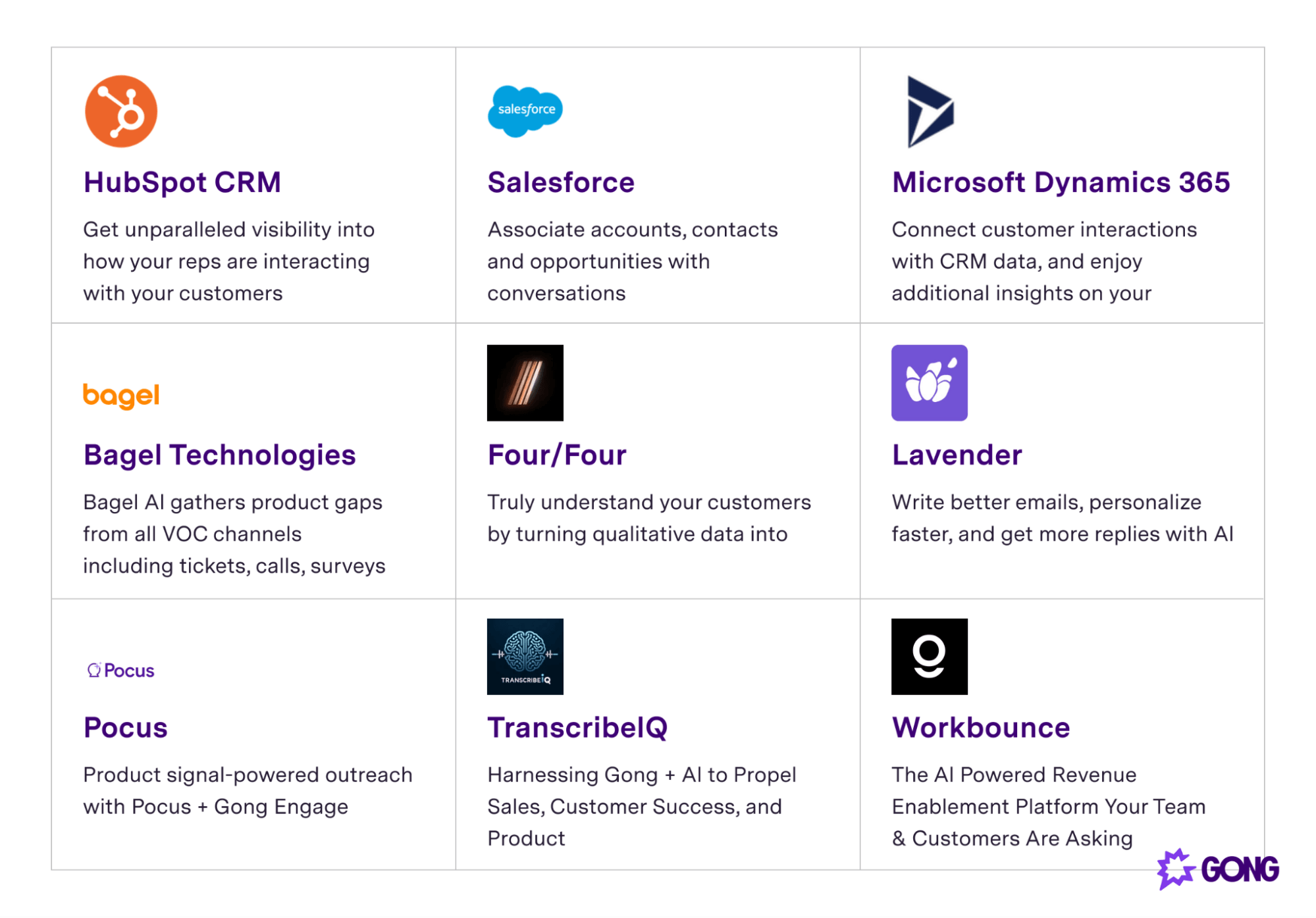
Gong integrates with popular CRM solutions like HubSpot and Salesforce and syncs data to give you a unified view of customer information and deals across your entire pipeline. You can use insights from its data analysis to enhance the efficiency of your sales processes and workflows, as well as close more deals.
3. Pipeline management and forecasting
Gong offers seamless pipeline management with automated workflows that streamline and accelerate your team’s sales execution. This end-to-end platform gives you a bird’s eye view of your entire pipeline, so you can fully understand its health at any given moment.
Gong’s forecasting framework analyzes more than 300 unique buying signals to gauge deal outcomes with 20% more accuracy than CRM predictions alone. Discard gut instincts and outdated CRM fields, and put precise customer interaction data at the core of your revenue operations in no time.
4. Competitive intelligence
Gong tracks relevant customer conversations and offers industry insights. It uncovers what’s working and what isn’t when you go up against your competition, so your revenue teams can learn from and avoid pitfalls.
Use AI to analyze the voice of your customer to find unaddressed market opportunities, differentiate your product, and master competitive selling . Gong also lets you set up Smart Trackers so you get alerts about real-time industry insights.
5. Prospecting and lead qualification
Gong offers a lead-scoring algorithm for sales prospecting . Use it to identify and prioritize the best potential leads, and use Gong’s insights into your win/loss data to uncover variables that lead to closed-won deals.
Now that you know all about sales intelligence tools…
You’re ready for Gong, which is so much more than a sales intelligence tool: It’s a revenue intelligence platform that’s transforming sales teams. Instead of piecing together data from multiple sources, Gong unifies all your customer interaction data from calls, emails, web conferences, etc., into a single, actionable source of truth.
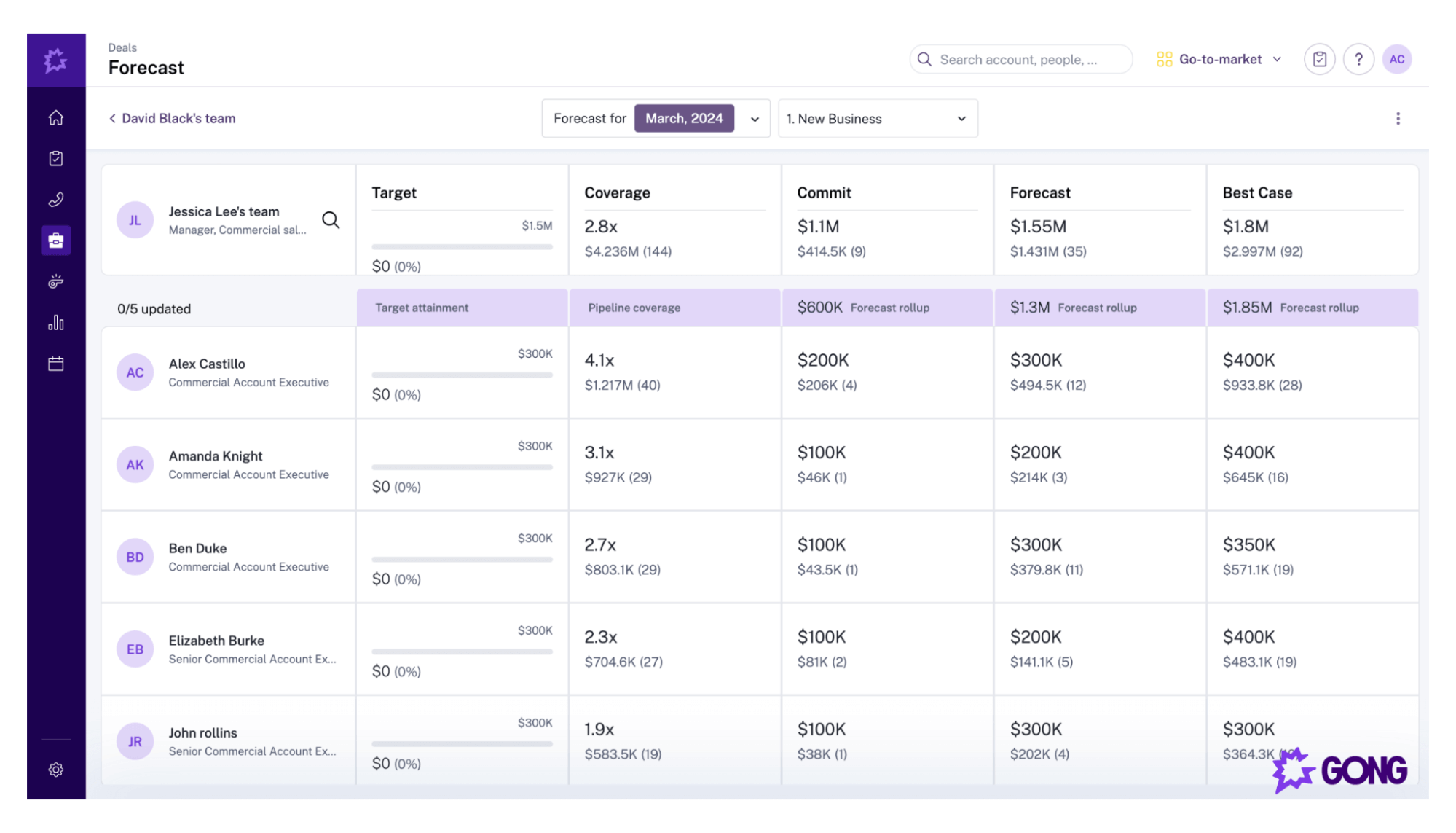
Use it to unearth insights that can help you coach more effectively, call forecasts confidently, navigate complex deals smoothly, and — most importantly — guide your team to closed-won deals more often.
Integrate Gong into your tech stack to simplify your sales process with a centralized dashboard, real-time alerts, and much more.

Director, Content Strategy and Research at Gong
For over a decade, Dan has provided revenue leaders with data and insights to inform and execute their GTM strategies. As a former analyst at Forrester Research, he worked with hundreds of B2B organizations to measure and improve sales productivity.
Discover more from Gong
Check out the latest product information, executive insights, and selling tips and tricks, all on the Gong blog.
